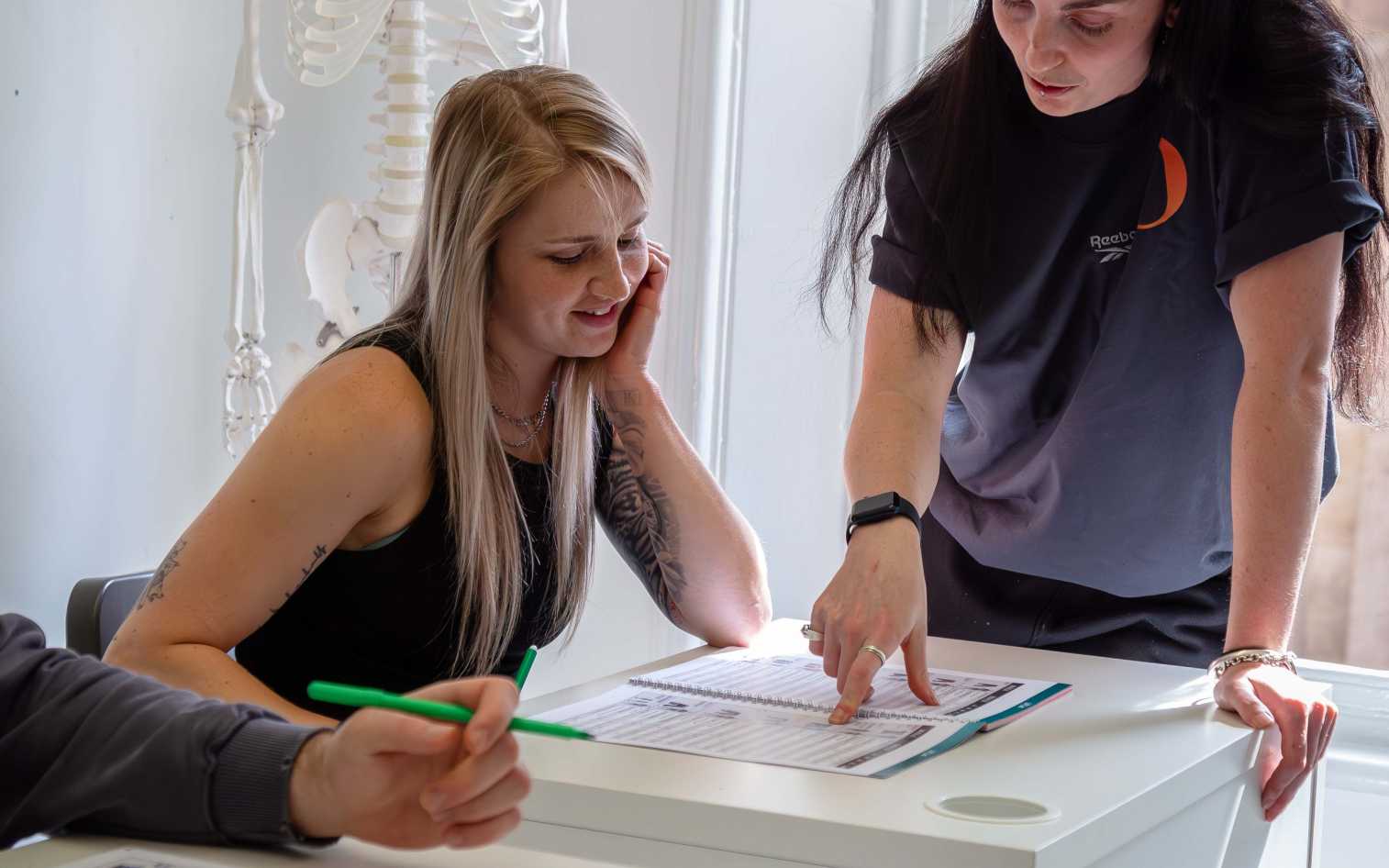
How to Become a Fitness Tutor (UK)
Become a Fitness Tutor
If you’re looking to progress your fitness career in a new direction or adding another income stream to your existing business, becoming a fitness tutor might be an exciting new route for you to explore.
In this article we explore everything from what qualifications you will need, job responsibilities, skills to become successful, fitness tutor wages, progression routes and how to get started.
Let's start with what a fitness tutor actually is and why you should consider this is a viable carer path.
What is a Fitness Tutor?
A Fitness tutor is someone who teaches and assesses other fitness professionals across a spectrum of fitness orientated qualifications and helps support students into the fitness industry.
Why Become a Fitness Tutor?
Extra Income Stream - Becoming a fitness tutor gives you the opportunity to add an extra revenue stream into your existing PT business and most freelance work is available at your quietest time
Rewarding - It is extremely rewarding as you’re helping others realise their dreams of becoming a fitness professional and starting their journey
Be an Authority - You get to become an authority and impart your industry knowledge and share your industry insights with individuals that aspire to be where you are.
Meet Like Minded People - You get to interact and engage with like minded people that share your passion for fitness and you get to meet some really interesting people.
Meaningful Work - This type of work is really meaningful and impactful in other people;s lives and gives your career a high sense of purpose.
What are the Responsibilities of a Fitness Tutor?
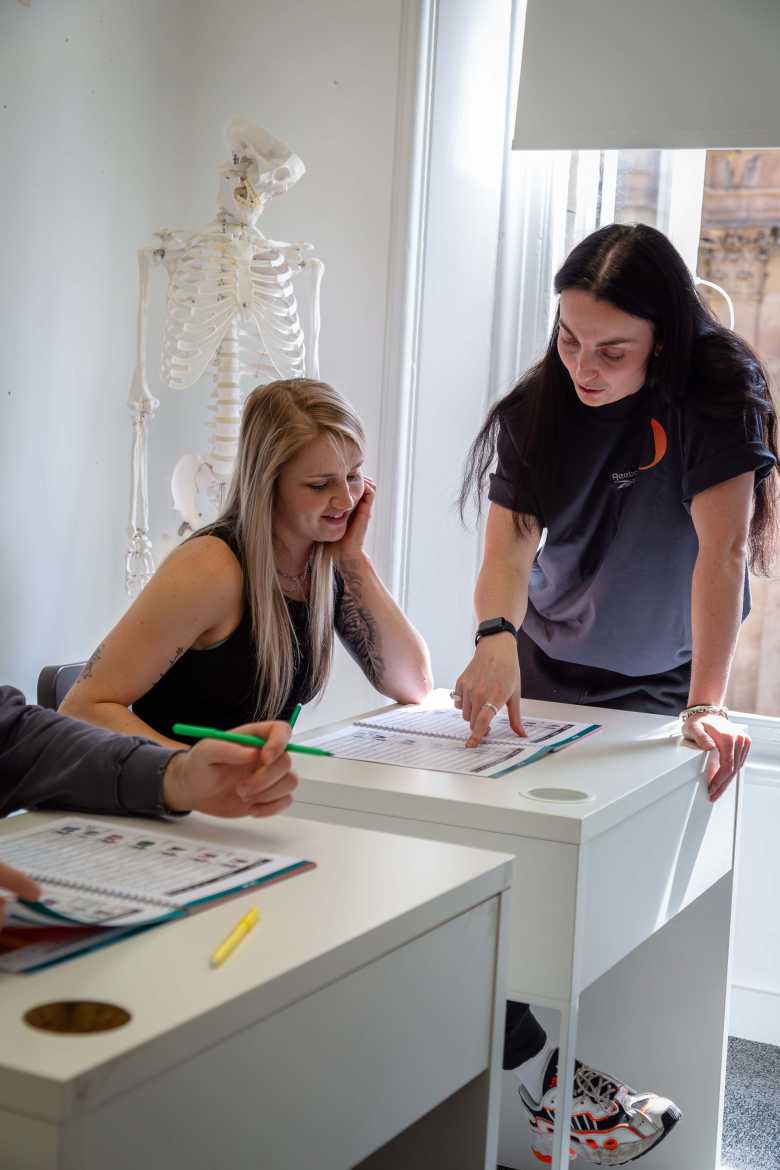
It is paramountly important to be aware of the core responsibilities of a fitness tutor to ensure that it is the right role for you and your career.
This is what a typical fitness tutor job entails:
Mark submitted assignments and exams against course criteria
Invigilate Personal Training exams ensuring compliance to governing body standards
Create learning resources and lesson plans
Provide both distance and in-person learning support through various mediums including, phone, email and via face to face feedback.
Organise and deliver practical based group sessions against the desired learning outcomes
Create a positive and environmentally inclusive classroom feel
Provide constructive feedback that is both positive and developmental.
Monitor attendance, punctuality and progress of each respective student.
Adhere to brand guidelines, polices and procedures
What Qualifications are needed to Become a Fitness Tutor?

In order to teach a fitness qualification, you must be qualified in the discipline of fitness that you’re looking to deliver.
For example, if you want to teach the Level 3 diploma in yoga, you yourself must be qualified in the Level 3 diploma in yoga yourself.
This might sound like common sense, but people do apply for tutor and assessing roles in disciplines that they themselves do not hold. It would be like trying to teach someone to drive and you don't have a driving license yourself.
You can get qualified as a Fitness Tutor and later add specific fitness qualifications that you want to teach.
There are two main qualifications you need in order to become a fitness tutor, a teaching qualification and an assessing qualification.
If you have already completed a teaching qualification in other forms such as within your degree or via other vocational methods, you only need to complete a vocational assessing qualification.
The two most common teaching and assessing qualifications within the health and fitness sector are:
Level 3 Award in Assessing Vocational Related Achievements
Level 3 Award in Education and Training
Most companies will combine these two qualifications together to create a teaching and assessing course so that you can complete the two qualifications sequentially and normally give you a discount for buying them both together.
How to Qualify as a Fitness Tutor & What You Will Learn on the Course
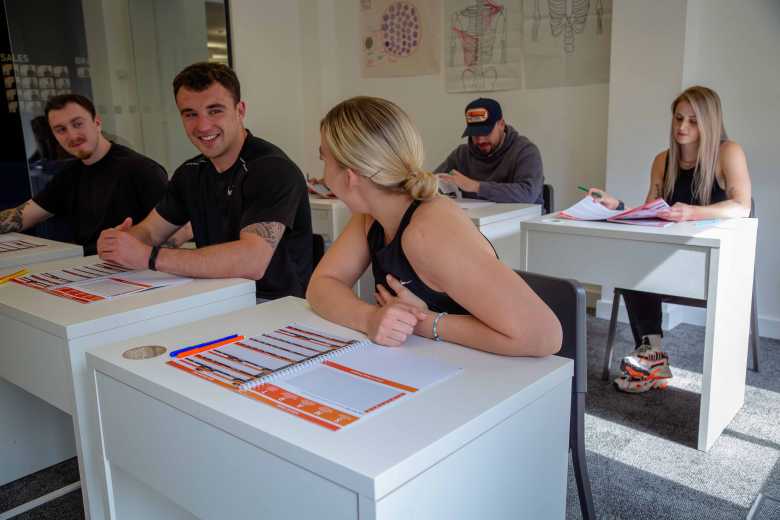
Virtually all teaching and assessor training courses are delivered via distance learning with compulsory shadowing work and a final assessment which can be completed via video or through a practical based assessment depending on the provider.
Courses are delivered in this way for two main reasons:
1. When you enrol onto a fitness teaching and assessing course you can actually start teaching and assessing students right away for up to 12 months, even though you haven't completed the qualification yet.
This is because an important aspect of the course is shadowing hours and gaining real world experience, hence you can technically start teaching or applying for jobs the same day you enrol.
2. The second reason is that the majority of individuals that want to become a gym tutor and assessor are existing fitness professionals and are adding the qualification to their existing business and need flexibility within the course in order to complete it.
What you Will Learn
How to create a safe and supportive learning environment for all students under your guidance.
You will learn how to conduct a formative and summative practical assessment as well as the different methods of assessment that training companies deploy
Demonstrate how to manage both small and large groups
You will develop an understanding of the importance of feedback and how to deliver said feedback in a positive and constructive manner.
You will understand your role and responsibilities as an educator and
Learn how to create lesson plans and inclusive teaching techniques and learning approaches.
How Long Will it Take to Get Qualified as a Fitness Tutor?

The guided learning hours set out by Ofqual for the Level 3 Award in Education and Training is 48 hours and is 44 hours for the Assessing Vocational Related Achievements qualification.
This might sound like a lot of studying, but virtually all teaching and assessing courses are executed via distance learning and the length of time it will take to become a qualified fitness tutor will vary from individual to individual, largely based on you:
Your Academic Ability - Your ability to learn, digest and apply the knowledge will directly iapct the rate that you qualify
Your Time and Availability - You can be as academically gifted as you like, but if you do not have the time and availability to learn the material and complete the associated research and assignments this will prelong how long it takes to qualify.
Assessment Availability - If the provider you study with doesn't offer frequent practical assessments or is slow at marking your assignments, this will directly impact the speed you obtain your qualifications.
Past Knowledge and Experience - If you have any past experience, qualifications or knowledge within teaching and assessing, this will naturally help you become a fitness tutor quicker.
How to Pick the Right Course Provider for you: Checklist

Picking the right course to suit your needs from a reputable training provider is a necessary requirement to ensuring you get the right qualification at the end of it and a good experience in the process.
Use our quick checklist below to make sure you pick the provider for your needs:
Check the Accreditation - Like any vocational qualification you need to ensure the qualifications you get are Ofqual regulated. Ofqual is the partner company to Ofsted (the government) who regulate all vocational courses across the UK.
Assessment Location / Availability - As where the final practical assessment is based as this will naturally determine where you have to go for your final assessment, if anywhere at all. Additionally, how often they run practical assessments will influence
Analyse the Reviews - Always take your time to analyse the reviews on neutral platforms of training providers to get a good understanding of what other people say and try and focus on reviews relevant to this type of course:
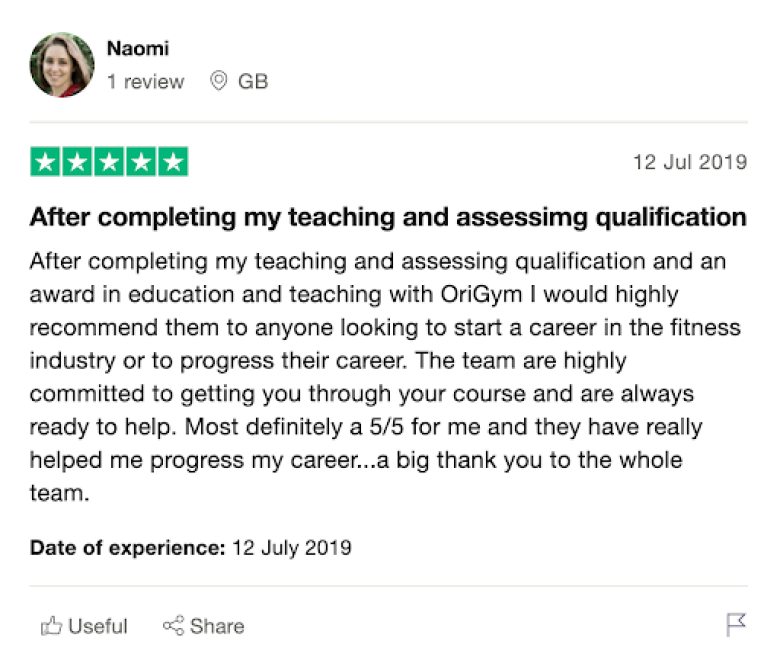
Shadowing Hours - This is really prudent this course as you will have to complete shadowing hours as part of the course curriculum. Find out which providers supply the shadowing hours or if you have to source this yourself as this can add an extra obstacle to you completing your qualifications.
Companies House Check - When buying high ticket items from a limited company, which virtually all training providers are, you should perform a quick companies house check to make sure they are in a financially stable position and when the company founded.
You don't want to invest your money with a Training Provider that has Gazette notices, which shows they might have unpaid tax debts or a company that has only been delivering courses for a short amount of time as they have not proven themselves in delivering quality over a sustained period of time.
Extra Costs - Always ask the provider about the possibility of extra costs being applied to you for cancelling an assessment day, failing an assessment or for certificates to be posted.
How long to Complete - Make sure to ask about how long that you have for each respective qualification to get the course complete and if you expire that timeframe if there is any charge to re-enrol.
This is why here at Active Careers we have partnered with OriGym, voted the UK's Training Provider of the Year for 2024 where there are no extra costs for failing assessments, have the highest reviews on Trustpilot in the industry, provide the shadowing hours for you and you can take as long as you like without being charged:
Find out more on OriGym's Teaching & Assessing Course
Download your Teaching & Assessing Course Prospectus Today
Becoming a Fitness Tutor and Assessor: Career Options
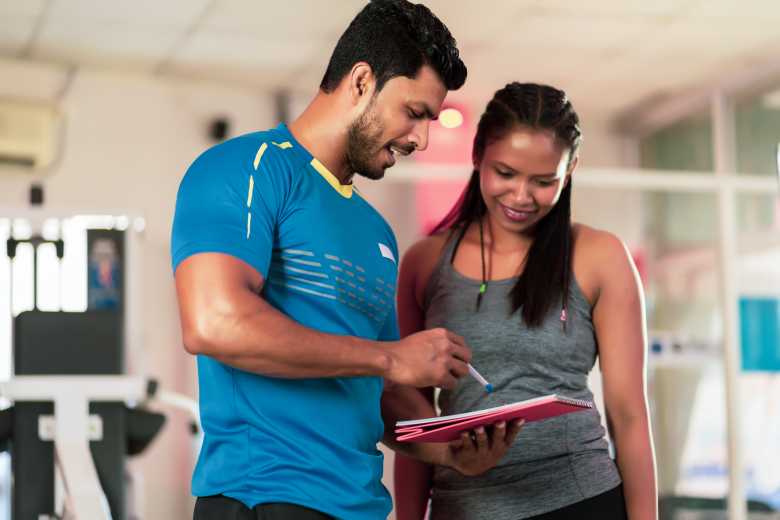
It is important to think where you want to deploy your fitness tutor qualifications when deciding how to become a fitness tutor and in what capacity.
Lets break down the most common routes and types of employers for where you can find yourself after qualifying:
Fitness Lecturer at a College
Most colleges run fitness courses against the academic calendar year, largely consisting of delivering gym instructing and personal training qualifications, but also a variety of sport diplomas and coaching courses.
Take this example here from Liverpool City College who are looking for a Sport and Fitness Lecturer with the prime focus being to deliver their Gym Instructing and Personal Training qualifications:
Fitness Tutor with a Local Council
A viable option is to become a fitness tutor for your local council who often run health and fitness programmes within the local community to promote fitness initiatives or up-skill young people across the region.
See this job example below by Buckinghamshire Adult Learning in accordance with Buckinghamshire County Council who are looking for fitness tutor on a casual contract:
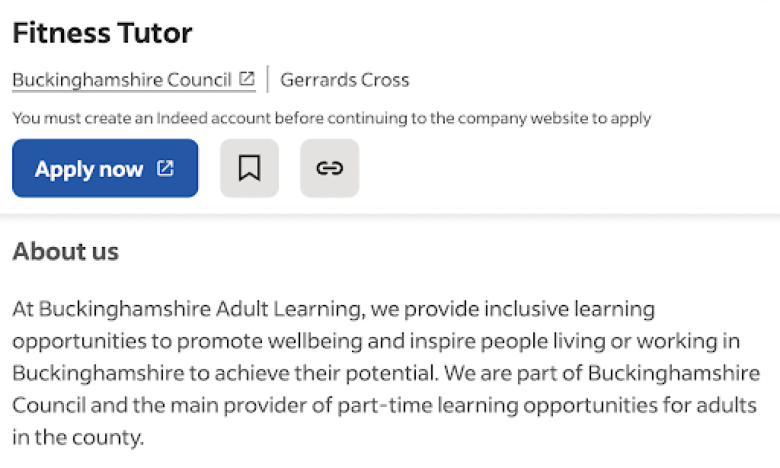
Fitness Tutor at a Training Provider
Fitness specific training providers hire tutors and assessors on part-time, full-time and freelance basis. This varies from provider to provider based on their business model and how they operate.
Some Training providers will hire all their staff on set full-time fitness tutor salaries, whilst others will deploy a freelance based model, where they hire tutors to just deliver assessment days within a particular area of the UK.
We spoke to Luke Hughes, who is the co-founder of fitness training provider OriGym on the routes fitness tutor can take within private training providers:
Luke Hughes, Co-Founder OriGym:
“All our fitness tutors at head office are salaried on full-time contracts at head office. We also salary the majority of our regional based tutors or offer them a fixed annual contract if they want to remain freelance.
We try to salary our tutor staff on purpose as it means they are more a part of our brand and more accountable to our student’s welfare and overall experience”.
Fitness Tutor at a University
Select universities offer vocational Personal Training courses to sports based students as an optional add-on to their degree and naturally this requires qualified fitness tutors and assessors in order to facilitate the course delivery.
Take this example here from St Mary's University who offer the Active IQ Level 3 in Personal Training to their student population as an optional short course:
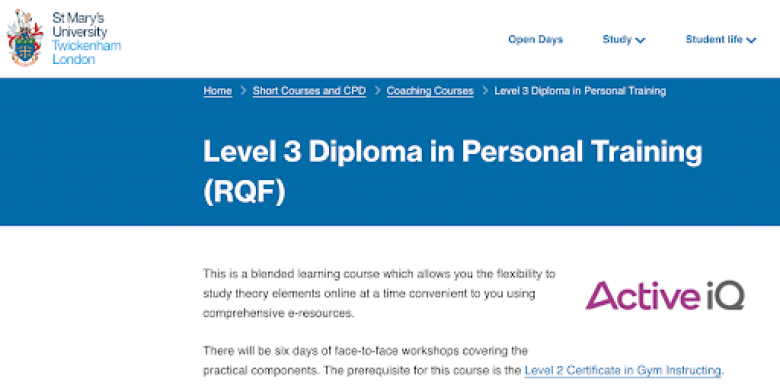
Tutor at a Work Based Learning Provider
Work based learning providers are training companies that specialise in delivering fitness qualifications to companies staff around their existing role as a form of ups-killing and professional development.
For example, someone might work in in a gym as a sales advisor and then through their gym’s work based learning scheme enrol themselves onto a PT course with their partnered training provider or they might be a training provider in their own right.
With work based learning providers you normally find yourself traveling around from company to company and it is most frequently a lot of 1-2-1 style teaching.
Classroom Vs Distance Learning Tutoring Roles

Many providers operate via distance learning, some exclusively deliver face to face, classroom based study, whilst others offer both forms of delivery.
This directly impacts what your job responsibilities entail and what your day to day work-life looks like.
Distance Learning Tutor
A distance learning tutor will primarily spend their time marking exams, assignments and giving constructive feedback to students on the work they have submitted.
This feedback can extend to phone, live chat box or video support, depending on the provider and how much support they offer as a business.
An accomplished distance learning based tutor can mark several hundred assignments per day, in addition to communicating with customers through the mediums mentioned above.
Face-to-Face Based Fitness Tutor
Face-to-face personal training tutors are normally in roles where the company adopts a more face-to-face learning experience to their customers, whether this is through one to one mentoring, workshops or via full-time intensive courses.
With face to face tutoring you will spend most of your time engaging with students either in a classroom setting or implementing theoretical concepts on the gym floor.
It requires you to give more support and feedback verbally, managing student engagement and behaviour and involves more day to day preparation work and lesson planning, but there is less marking and administration work involved by contrast to a distance learning tutor.
What Skills are Needed to be a Fitness Tutor

One aspect to think about before becoming a fitness tutor is that a successful fitness tutor has a different skill set to a successful Personal Trainer.
Quite often someone who is a great PT, can find teaching difficult and equally sometimes people who are not great at Personal Training can find themselves excelling as a tutor.
This is why it is advisable to review the below skills needed to be a Fitness Tutor before enrolling yourself onto a course:
Technical Knowledge
You must be someone who has a very strong understanding and comprehension of anatomy and physiology, training systems, nutrition and exercise science fundamentals in order to be successful.
Communication Skills
You will need excellent verbal, non-verbal and written communication skills to become a fitness tutor. Additionally, you will need to provide feedback in a sensitive manner and be a good active listener to really understand the needs of the student.
Leadership
You will need to establish strong leadership and respect amongst your student population to help facilitate a positive learning environment and keep them stay on track and motivated with their studies.
Problem Solving
You will need to possess problem solving skills, especially when dealing with difficult students, changes in teaching requirements or when creating new and engaging tasks.
Planning and Organisational Skills
You will need to plan each lesson out with care with the learning objectives of the session in mind. Keeping yourself organised and prepared is essential for every successful teacher.
Patience
You will be dealing with individuals and groups from a range of both diverse and academic backgrounds where patience really is a virtue.
Fitness Tutor Salary: How Much Can you Earn as a Fitness Tutor?
Before becoming a fitness tutor, it is a good idea to get an understanding of how educational institutions pay their tutors, what incentives are involved and what a typical fitness tutor salary looks like.
What is the Average Day Rate for a Fitness Tutor
Many training providers pay their tutors a set day rate to delivering practical based workshops and for delivery of in-person assessments, especially at centres outside of their head office’s remit.
The average day rate posted on our jobs board is £170 a day, with a typical range of £150 - £200 per day.
See this example by JFC Training below who are paying a flat £150 day rate for a freelance tutor is South East London:
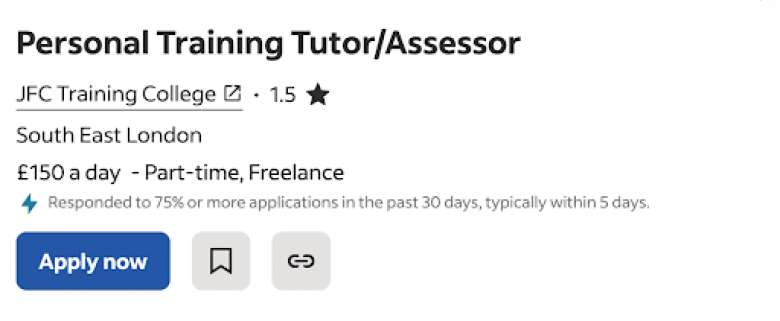
If you’re looking for a more full-time, permanent role with an annual personal training tutor salary the National average based on jobs posted on our jobs board is £32,000 (Excluding OTE) and £36,000 including OTE.
See below an example by this job post by a Training Provider looking for a Fitness Tutor in London:
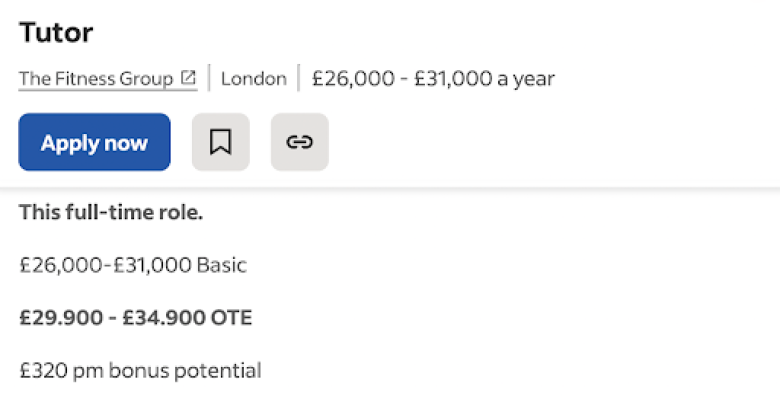
Many companies offer small bonus or commission schemes to fitness tutors based on them either upselling affiliated services such as other courses or for delivering exceptional customer service.
Luke Hughes, Managing Director at OriGym said:
“Customer service is paramountly important to us, thus we incentivise our tutors to get reviews from our students, which can only occur if they have had a positive experience and then we financially reward our tutors for every review they obtain”.
Company Benefits of Working as a Fitness Tutor

There are a few benefits you get when you become a fitness teacher and assessor depending on the company:
Travel Allowance - Most companies provide some sort of travel allowance to their freelance tutors and assessors, especially if they are operating across a particular region or are being asked to commute to various venues.
Discounted / Free Courses - Most Training providers offer free qualification enrolment on further qualifications that you can benefit from such as yoga, pilates, strength and conditioning or exercise referral.
Remote Working - There are plenty of roles that enable you to work from home if they run online courses as you don’t physically need to be present in the classroom.
Partner Discounts - Larger providers have established connections and partnerships with brands that span across the sector.
Frequently you can get discounts on things that you can either benefit from individually like supplements or discounts on things that can benefit your career like personal training software or portable gym equipment.
Free Gym Membership - Most providers have deep links and mutually beneficial partnerships with gyms and subsequently can offer free gym memberships for their staff.
What are the Working Hours for a Fitness Tutor?
The working hours as a fitness tutor varies based on the type of role you end you pursuing.
When becoming a freelance fitness tutor for a Training Provider on either an hourly or day rate, you will find that the majority of work available is weekend work as this is when their courses run.
Take this example by a Training Provider looking for a tutor to cover their weekend courses in London: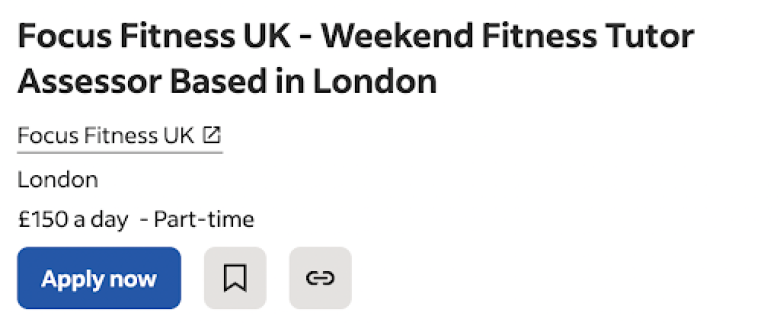
If however, you pursue a role that is full-time either remotely or working out of their head office, you will find that the majority of schedules are the more conventional Monday - Friday, 9am -5:30pm.
See this example below by a Training Provider looking for a fitness tutor to operate out of the head office in Preston:
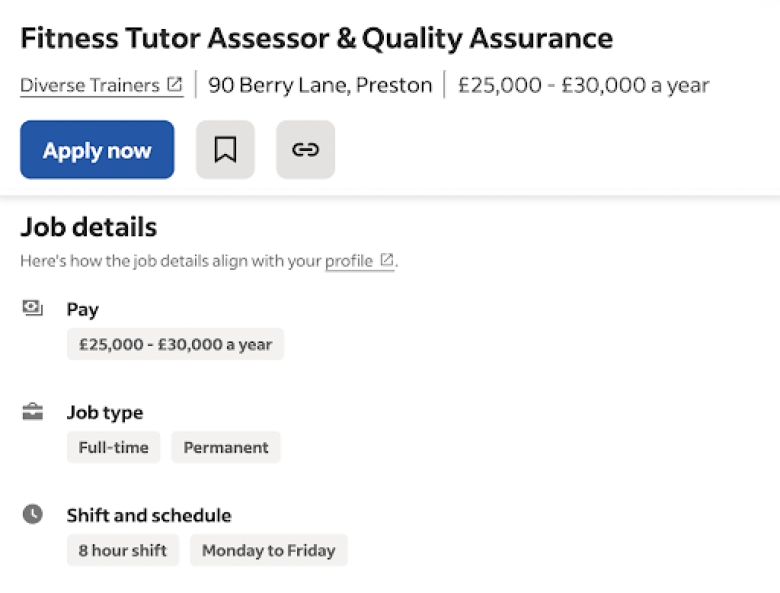
Where to Find and Apply for Fitness Tutor Jobs

If you have decided that a career as a personal training tutor is right for you, you need to know where to start job hunting.
Firstly, you can find plenty of roles posted on large holistic job boards like Indeed, Glassdoor, Jooble and Monster, but as this is fairly industry you actually find more roles on more industry specific platforms like ours.
The Active Careers jobs board is for only jobs and employers that are within the health and fitness sector, thus you can laser in quickly on fitness orientated jobs that really resonate to you.
You can always approach training providers directly and either apply via their dedicated careers page, which most of the larger providers have on their websites like the example below or you can send a speculative email stating your qualifications and the potential locations you can cover.

Make sure to tailor your email to each respective provider, nothing is worse than an applicant coming across that they have sent the same email to all their competitors.
In order to find a list of training providers, if you just search in Google the awarding body name approved with training centres e.g. YMCA Awards approved training centres, this will bring up a list of every training company under their remit and them you can just work your way down the list.
How to Become a Fitness Tutor: Progression Routes for Fitness Tutors

There are a large number of progression routes and careers that lead on from being a fitness tutor and assessor, both employed and freelance.
See below some of the natural stepping stones that you may want to progress towards when becoming a qualified fitness tutor:
Employed Career Progression Routes
Lead Tutor and Assessor - £33,000 Average Salary
A first natural career progression route for many tutors is to become a Lead tutor and Assessor where you will be responsible for supervising, developing and nurturing a small team of other tutors and assessors.
This role comes with more responsibility and pressure than a normal tutor and you will help drive standards across the education department, report on tutor performance and provide them training to hone their skills.
Head Tutor / Head of Education - £40,000 Average Salary
The role of the head tutor is to manage and ensure the smooth operational running of the entire education department at a training provider or college.
You will help provide training, mentoring and support to fitness tutors as well as determining how courses are run, onboarding of new staff, reporting on course statistics and overseeing how course materials are developed and utilised.
Internal Quality Assurer (IQA) - £35,000 Average Salary

Every college, University and Training Provider must have an Internal verifier that helps ensure the educational standards of the institution are adhered to.
The Internal quality assurer monitors and assesses fitness tutor’s delivery and quality of teaching within the organisation to ensure that they are compliant with both internal and external standards.
You will also give constructive evaluations on tutors to ensure best practices are applied and create strategic action plans of how fitness tutors can improve their craft.
You will need an additional IQA qualification and quite often have to travel within this role to review teaching standards of tutors across the UK.
External Quality Assurer (EQA) - £38,000 Average Salary
Very similar to the role of an IQA is that of an External Quality Assurer (EQA).
The only major difference is that an EQA comes from an external company, normally a regulator or an awarding body to ensure that standards, protocols and their procedures are being met.
They normally liaise with the IQAs across a plethora of training providers and colleges to make sure that the assessments have been conducted correctly, fairly and identify areas of weaknesses.
They sample assessment feedback and resources and offer both guidance and support to centres that need it.
Course Developer / Head of Qualification Development - £45,000 Average Salary
Most large educational centres, awarding bodies and accreditors have an internal course developer or Head of qualification development.
Their role is pivotal in creating new qualifications that either the Training Provider can start offering as a new service or an awarding body can develop that meets industry needs.
You will create qualification frameworks, develop learning outcomes against regulatory requirements, establish course criteria and policies for training centres to follow as well managing a team of qualification developers to meet deadlines.
Centre Risk and Assurance Manager - £50,000 Average Salary
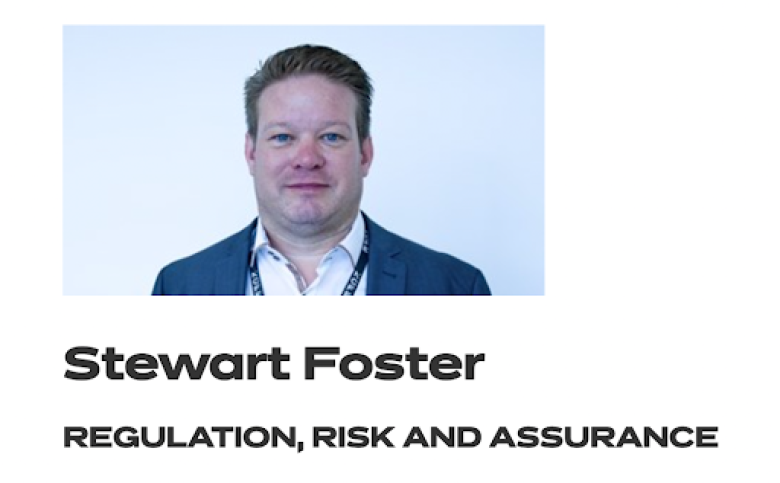
A risk and assurance manager traditionally works at a governing body or awarding organisation, which for the fitness sector are Focus Awards, NCFE, YMCA Awards and Active IQ.
The role involves evaluating training centres under your remits performance, with a particular emphasis on the risk factors they present.
You will create risk assessment processes and procedures, conduct centre audits, compile risk assessment reports, liaise with training providers on risk management strategies and deliver training to them on how they can improve their risk assessment scores to ensure they remain compliant with regulatory standards.
Centre Business Development Manager - £35,000 Average Salary
When becoming a fitness tutor, a role that might appeal to you if you have great communication and sales skills is that of a Centre Business Development Manager (CBDM).
As a CBDM you will manage the accounts of both existing training centres and try and onboard new training centres to help the awarding body grow their network and sales.
You will identify new potential business areas, work towards KPI targets, handle contract negotiations with training centres and maintain positive relationships.
Freelance Career Progression Routes
Diversify the qualifications that you can deliver
A good way of increasing your potential income as a fitness tutor is to increase the qualification range that you can actually deliver.
Think of it like when you become a fitness class instructor, the more classes you can teach, the more opportunity there is.
There is a demand for tutors across the UK with certain specialisms such as yoga, strength and Conditioning, exercise referral and pilates. You can normally charge a higher day or hourly rate in order to reflect the specialism.
See here for example a Training Provider looking for a part-time yoga tutor in Swindon where they are offering £28 per hour, which equates to £224 a day, if it was an 8 hour days worth of delivery:

Start Your Own Training Provider
Once you become a fitness tutor and assessor and ascertained a few years of experience, whether in a freelance capacity or via working as a full-time employee you could start your very own independent training company.
In order to start your own provider, you will need to complete the application process, which is outlined on governing body websites, like this example below by Active IQ:
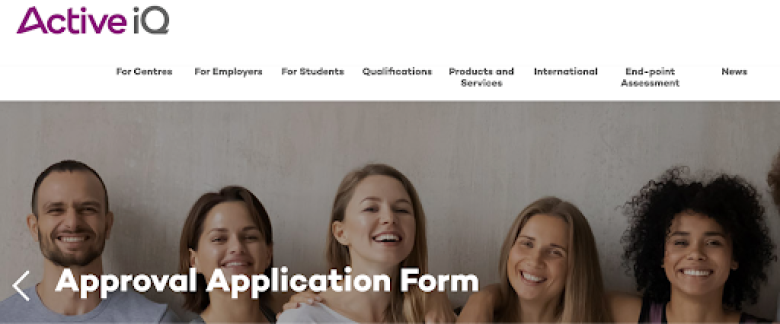
The application process can vary slightly from awarding body to awarding body, however the below steps you will definitely need to do regardless of which body you choose:
Select an awarding body to whose qualifications you will be delivering
Pay for your centre approval for the up and coming year
Submit their stipulated processes and procedures
You must have a minimum of two staff members, one that is a qualified teacher and assessor and one that holds an internal quality assurance certificate (this can include yourself).
Once this is all done you normally get assigned an EQA who comes out to visit you with a CBDM to understand your business goals, negotiate registration rates and help you get up and running.
Freelance as an Internal Quality Assurer
You can in fact you can find roles of where training providers in particular pay fixed rates for internal quality assurers to intermittently IQA their students work.
This is particularly prudent at providers where their undergoing large growth and need someone to help manage the load or if the Training Provider is new and they can't afford to bring in an IQA full-time and thus hire a freelancer to assist with this.
Freelance as a Course Developer
Similar to the internal quality assurer role, you can also freelance as a course developer and charge Training Providers for writing of new course materials against existing course frameworks or develop new course frameworks against the market demands and license the course rights to a provider.

